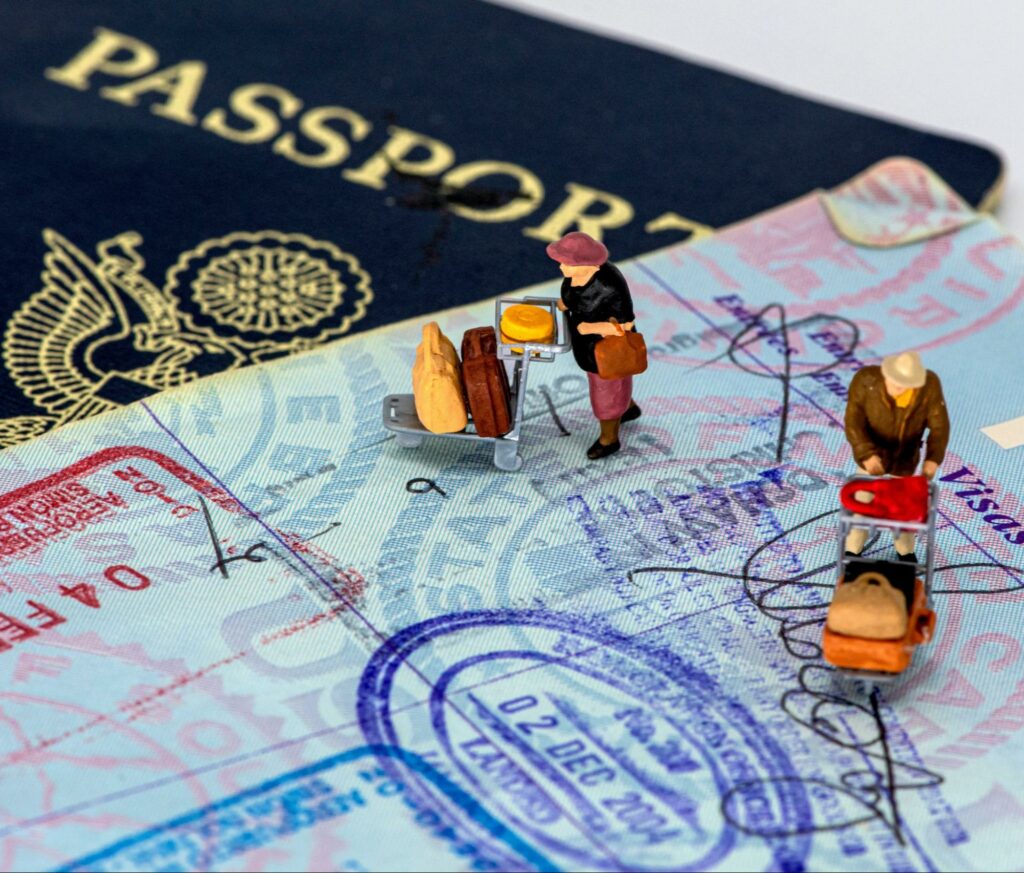Want some help? For your students to follow the rules and guidelines and to help you share this information with them, we’ve created a template you can personalize with the rules that best suit your trip and group. The idea is that through this “contract,” students understand and adopt these guidelines that will keep them safe throughout the trip.
Downloadable Student/Parent Contract to follow school trip rules
Where should we send you the contract template?
High School Trip Travel Rules

Travel rules are guidelines and regulations established by governments, airlines, hotels, and other travel-related entities to ensure travelers’ safety, security, and comfort. These rules may vary depending on the destination.
Here are some general guidelines that will help you in every destination:
- Always bring a copy of your passport or ID: Keeping your documents safe is extremely important when traveling abroad. To ensure none of your students lose the documentation, ask them to bring a copy of their passports. That way, they can leave the original one at their accommodation during visits, walks, or activities.
- Bring a copy of your health insurance: Medical emergencies can happen anytime, and being prepared with a copy of your health insurance policy can save time and money in a medical emergency.
- Follow local laws and customs: The customs and social norms may vary depending on the country you visit. Do some research because, for example, not wearing a seatbelt on a bus is permitted in some countries, but in Spain, if you are not wearing a seatbelt, you can get a fine of at least 90 euros.
- Medication and medicines for allergies: Different countries may have different regulations regarding medication. Certain medications that are available in one country may not be available or legal in another.
Make sure your students know that it is always best to bring enough medication and medicines for allergies for the entire trip and a little extra in case of unexpected delays. - Independent trips: Some schools allow students to continue traveling after the high school trip is finished. Check with your school and if this is the case, and make sure to have all the information about who is traveling with you and who is traveling by themselves, and where they are going.
High School Trip Safety Rules

Safety rules and guidelines are regulations designed to maintain your students’ physical and emotional well-being throughout the trip. Following these guidelines can help ensure their safety and those around them.
- Travel in groups and don’t wander off: Students are most likely not familiar with their surroundings when traveling abroad. That’s why we encourage you to ensure that no one wanders off alone. Getting lost in a foreign destination is a bad experience for the student, the chaperones, and the rest of their classmates.
To avoid this kind of experience, we recommend that students walk around in small groups or pairs in their free time and establish a designated location to regroup afterward. - Be on time: When leaving for an activity or meeting a guide for a visit, being on time is very important. Ensure that your students know the meeting point and the time they are supposed to be there.
We recommend always meeting up with enough time to wait if someone is late. You surely don’t want to leave anyone behind or be late! - Eat and drink in designated places: Your destination site might have strict limitations when drinking or eating on-site.
For example, eating and drinking on private buses are not allowed in places like Spain. Research these rules, and share the information with your students.
High School Trip Behavior Guidelines

Behavior rules are standards and expectations that show how students should conduct themselves in the different settings and situations they will face abroad. Sticking to behavior rules is essential to create a positive and respectful environment that cultivates cooperation and productivity.
- Social norms: Some social norms often vary depending on the country or city. Awareness of them will help students understand the culture and how to behave, reflecting positively on themselves, the school, and the country.
- Be respectful of others: Students should respect each other and their chaperones. Also, they must respect local customs and culture, even if they don’t understand them.
- Use of drugs or alcohol: Students should be reminded to avoid risky behavior such as alcohol or drugs. They should be aware that these actions have potential legal consequences.
High School Trip Enjoyment Guidelines!

Lastly, rules for enjoying the trip are guidelines that can help students make the most of their travel experience. Standing by these rules can help them fully immerse themselves in their destination, make lasting memories, and enjoy the experience.
- Participation in activities: To make the most of the experience, encourage students to actively participate in all the activities and visits. Make sure to include fun activities they will be drawn to and make the visits as dynamic and enjoyable as possible.
- Dress for the weather and the activities: Wearing clothes that suit the weather and the activities they are going to do is vital. Students should be aware of the activities schedule and the destination’s weather conditions.
- Ask for help navigating cultural differences: Cultural shock is widespread in study abroad trips, especially when traveling to a different country. Let your students know that you are there for them and that they can ask you any questions regarding the country and its customs and traditions.
- Stay open-minded and have fun! Lastly, advise your students to stay open-minded and embrace cultural differences. This way, they’ll return home satisfied and fulfilled.
Conclusion
High school trips abroad can be a valuable and enriching experience for students. Establishing rules and guidelines ensuring their safety and well-being while traveling is essential.


